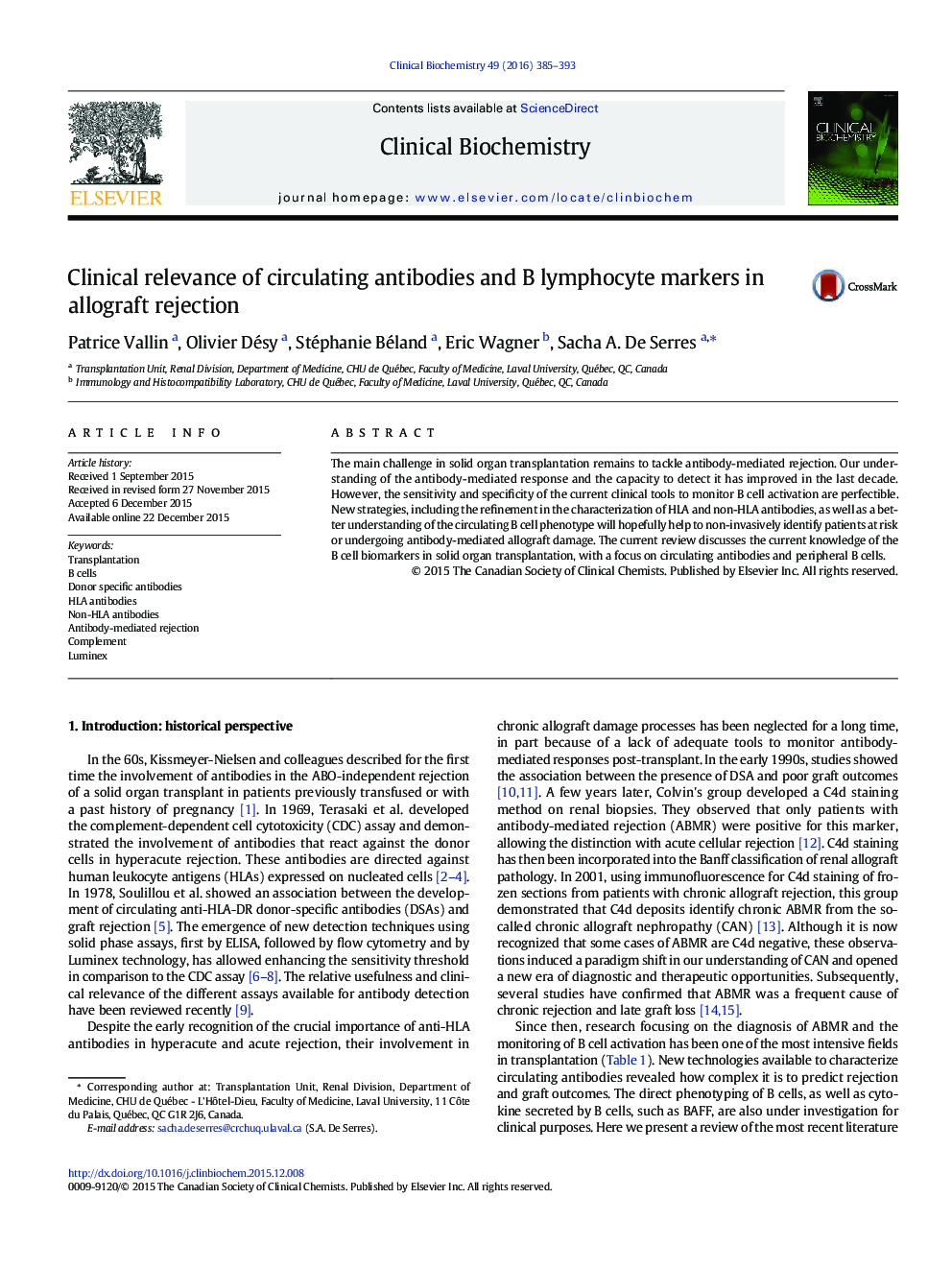| کد مقاله | کد نشریه | سال انتشار | مقاله انگلیسی | نسخه تمام متن |
|---|---|---|---|---|
| 1968621 | 1538863 | 2016 | 9 صفحه PDF | دانلود رایگان |

• Donor specific antibodies DSA detection is increasingly used for monitoring B cell responses.
• DSA remains a complex and currently imperfect tool for clinical decision-making.
• Longitudinal assessment of alloreactivity should be the preferred strategy for monitoring.
• Refining DSA characterization is still needed to make it a strong biomarker.
• The eplet paradigm may be the future of monitoring for anti-HLA antibodies.
The main challenge in solid organ transplantation remains to tackle antibody-mediated rejection. Our understanding of the antibody-mediated response and the capacity to detect it has improved in the last decade. However, the sensitivity and specificity of the current clinical tools to monitor B cell activation are perfectible. New strategies, including the refinement in the characterization of HLA and non-HLA antibodies, as well as a better understanding of the circulating B cell phenotype will hopefully help to non-invasively identify patients at risk or undergoing antibody-mediated allograft damage. The current review discusses the current knowledge of the B cell biomarkers in solid organ transplantation, with a focus on circulating antibodies and peripheral B cells.
Journal: Clinical Biochemistry - Volume 49, Issues 4–5, March 2016, Pages 385–393